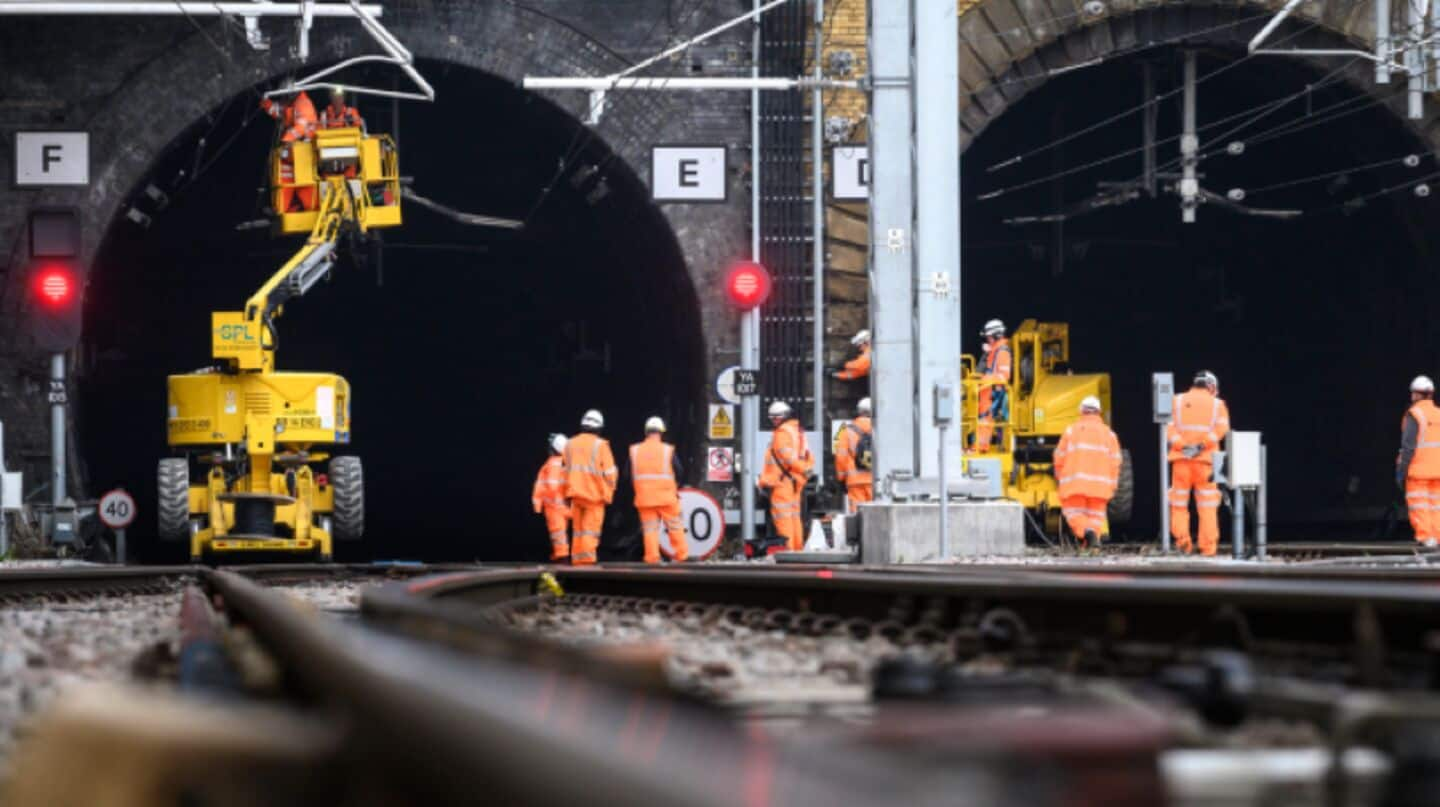
No more dropped calls on trains, UK aims for fix
What's the story
Network Rail, the government-owned body responsible for Britain's railway infrastructure, has announced a major project to eliminate mobile phone blackspots on key railway lines and tunnels by 2028. The initiative comes after a deal was signed with two private telecom firms. The plan is expected to significantly improve 4G and 5G connectivity for passengers traveling on trains or at stations. The project may take three years, as work can only be carried out when trains aren't operating on the tracks.
Project details
Project Reach will lay 1,000km of fiber optic cable
The project, dubbed "Project Reach," will see the installation of 1,000km of ultra-fast fiber optic cable along parts of the East Coast Main Line from London King's Cross to Newcastle and the West Coast Main Line from London to Manchester. Telecom firm Neos Networks will also lay cables along the Great Western Main Line from London to Cardiff and the Chiltern Main Line.
Future growth
Project to be expanded to over 5,000km in near future
The Department for Transport (DfT) has said that the project will be expanded to over 5,000km "in the near future." Telecom firm Freshwave has been tasked with eliminating blackspots in 57 tunnels covering nearly 50km. It will work with mobile network operators (MNOs) BT, O2, and VodafoneThree to upgrade mobile connectivity in tunnels of 250m and longer on the East Coast, West Coast, and Great Western lines.
Cost savings
Project will save taxpayers around £300 million
Network Rail has claimed that the private investment in this project will save taxpayers around £300 million. The two telecom companies are funding it instead of Network Rail having to renew its existing infrastructure. Jeremy Westlake, Chief Financial Officer at Network Rail, said this investment model would "deliver the necessary upgrades to our telecoms infrastructure faster while offering significant value-for-money for the taxpayer and stimulating wider economic benefits across the country."
Official endorsement
Deal hailed as a game-changer for passengers
Transport Secretary Heidi Alexander hailed the deal as a "game-changer for passengers up and down the country." She said it would support the government's "broader goals of economic growth and digital innovation." Bruce Williamson, spokesman for campaign group Rail Future, also welcomed better connectivity on railways. He said there is demand for connectivity as people live on their smartphones and work on trains.